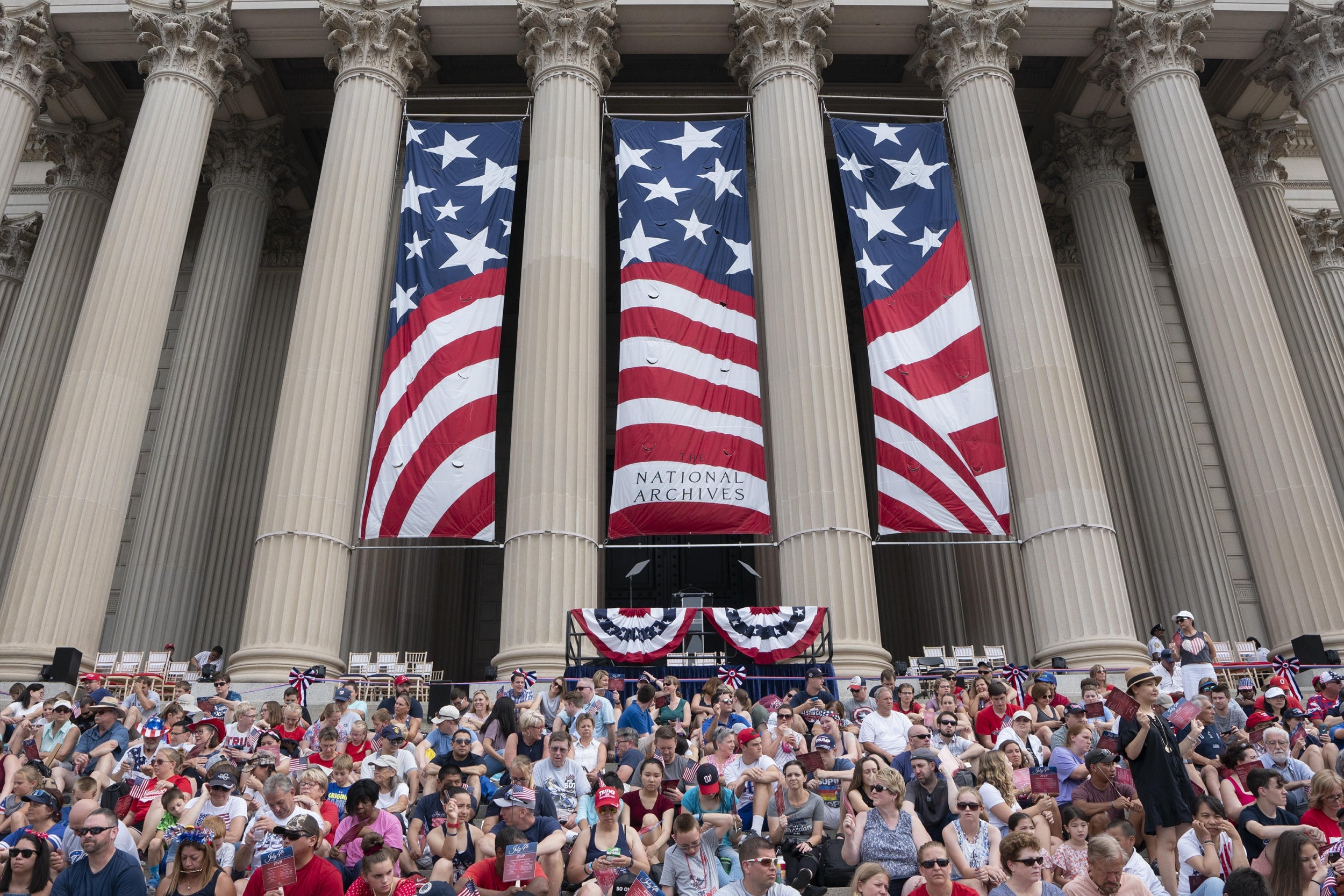If we want true equality, we shouldn't just give DC statehood. We should make it the first presidential primary
DC is more representative of America than Iowa or New Hampshire. It also has more residents than the state of Wyoming — but no representation at all


Your support helps us to tell the story
From reproductive rights to climate change to Big Tech, The Independent is on the ground when the story is developing. Whether it's investigating the financials of Elon Musk's pro-Trump PAC or producing our latest documentary, 'The A Word', which shines a light on the American women fighting for reproductive rights, we know how important it is to parse out the facts from the messaging.
At such a critical moment in US history, we need reporters on the ground. Your donation allows us to keep sending journalists to speak to both sides of the story.
The Independent is trusted by Americans across the entire political spectrum. And unlike many other quality news outlets, we choose not to lock Americans out of our reporting and analysis with paywalls. We believe quality journalism should be available to everyone, paid for by those who can afford it.
Your support makes all the difference.For the first time in 25 years, the House Committee on Oversight and Reform voted a DC statehood bill to the full House. If it became law, the bill would give the citizens of DC full Congressional and Senatorial representation for the first time in history.
Since Republicans control the Senate, there's little chance the bill will pass both Houses of Congress. Still, Democrats did the right thing by moving the bill forward, and showing their commitment to ensuring that all people, wherever they live in the US, are properly represented.
Democrats can and should go further, though. Specifically, they should make DC the first contest in their presidential primary.
Currently, the first two contests on the Democratic presidential schedule are the Iowa caucuses and the New Hampshire primary. That's tradition — but, unfortunately, as this year has made clear, tradition is frequently terrible. In caucuses, voters argue for their candidates over the course of the night and then switch their choices if their candidates don't do well enough. The lengthy process excludes many disabled and working people. It's cumbersome and confusing, and this year tabulation of results was so bungled there still isn't a real winner more than a week later.
In addition to the logistical problems with caucuses though, Iowa is a poor choice for a first contest in the Democratic field because it's disproportionately white. The Democratic party touts its commitment to diversity and anti-racism. But Iowa is 85 per cent white. New Hampshire is 90 per cent white. Meanwhile, the country as a whole is only 64 per cent non-Hispanic white.
That means that the first test of electability, and the first big news media bumps for candidates, are determined by electorates that include few people of color. As a result, candidates like Pete Buttigieg, whose support with black voters has hovered around an embarrassing 4 per cent, end up doing disproportionately well. Buttigieg essentially tied with Bernie Sanders in Iowa and came in a close second to Sanders in New Hampshire. Sanders' support with black voters has increased from around 17 per cent to 27 per cent after his strong showing in the first caucus, but he still trails Joe Biden, who has 35 per cent support among black voters, and finished a dismal fourth in Iowa and fifth in New Hampshire.
Democrats have argued for some time about which state might be better as the lead in the primary process. Massachusetts papers have argued for Massachusetts, Illinois politicians have argued for Illinois. I think the primary with the best argument for primacy, though, is Washington DC.
Washington DC is around 48 per cent black and 40 per cent white. No Democratic contender could get through the primary appealing only to white voters. DC would also be convenient for many national politicians. Buttigieg and Biden were able to stump Iowa the last week of the caucuses while Sanders, Warren, and Klobuchar were stuck in DC for impeachment hearings. If the first primary were in DC, that would negate this kind of unfair disadvantage.
DC is also appealing because it is small. Many commentators like Iowa because it encourages retail politics — candidates go door to door, making personal connections. But Iowa, with 3 million voters, is four times as large as DC, which has some 711,000 people. Candidates could get to know and meet a lot of those voters personally — as could the national media.
And that's the most important reason to put DC first. The first primary brings a huge amount of attention to bear on local people, local politicians, and local issues. In Iowa, that means national politicians pledging their support for biofuels every four years. In Washington DC, it would mean a huge spotlight on the fact that people in DC don't have voting representatives in Congress.
Voters in DC don't get to vote for Senators, nor for a Congressperson. Wyoming, with 577,000 people, has two Senators; DC, with 100,000 more inhabitants, has none. That's unfair to the people of DC, who, without representation of their own, are often targeted by conservative national legislators who want to force the district's liberal voters to live with conservative gun laws and abortion restrictions.
It's also unfair to the rest of the country. The Senate currently leans very conservative, because large, low-population, rural, mostly white states like Wyoming get as much Senate representation as huge, diverse states like California and New York.
As a result, Republcians gained 9 Senate seats in 2014 with 52 per cent of the vote; Democrats won 54 per cent of the popular vote in 2016 and only picked up 2 seats.
Giving DC statehood wouldn't fix this problem. But it would start to ameliorate it. Two more Democratic votes would not have resulted in a majority vote for acquittal for Trump in 2020. It would have made the attempt at ACA repeal much less of a nail-biter for Democrats in 2017, though. And it would greatly increase the chances of a Democratic takeover of the Senate in 2020. That's without discussing Puerto Rico, Guam, and the Virgin Islands, all of which also deserve representation.
The calculus here isn't just partisan. It's a matter of principle. The Civil Rights Movement was dedicated to enfranchising black people who had been systemically prevented from casting ballots for hundreds of years. Now it's some 60 years later — and black voters are still being systemically disenfranchised. Florida is trying to reinstitute a poll tax. North Carolina used gerrymanders to keep black people from being represented at the state level. And the POC majority in Washington DC has no representation in the Senate or the House.
The US was founded on the principle of no taxation without representation. But too many people in the nation still are denied real, equal representation because of antiquated rules and deliberate, often racist efforts to keep their voices from being heard. Democrats should do all they can to change that. And one thing they can do, on their own, immediately, is to give Washington DC voters the first say in the presidential primary going forward.
Join our commenting forum
Join thought-provoking conversations, follow other Independent readers and see their replies
Comments